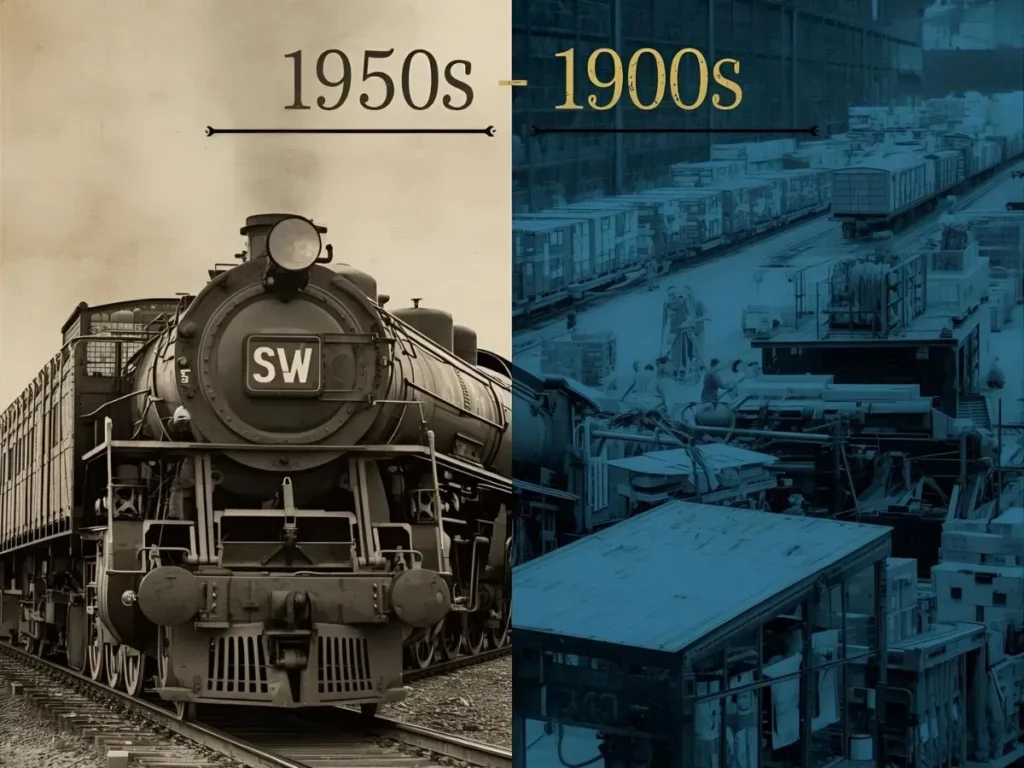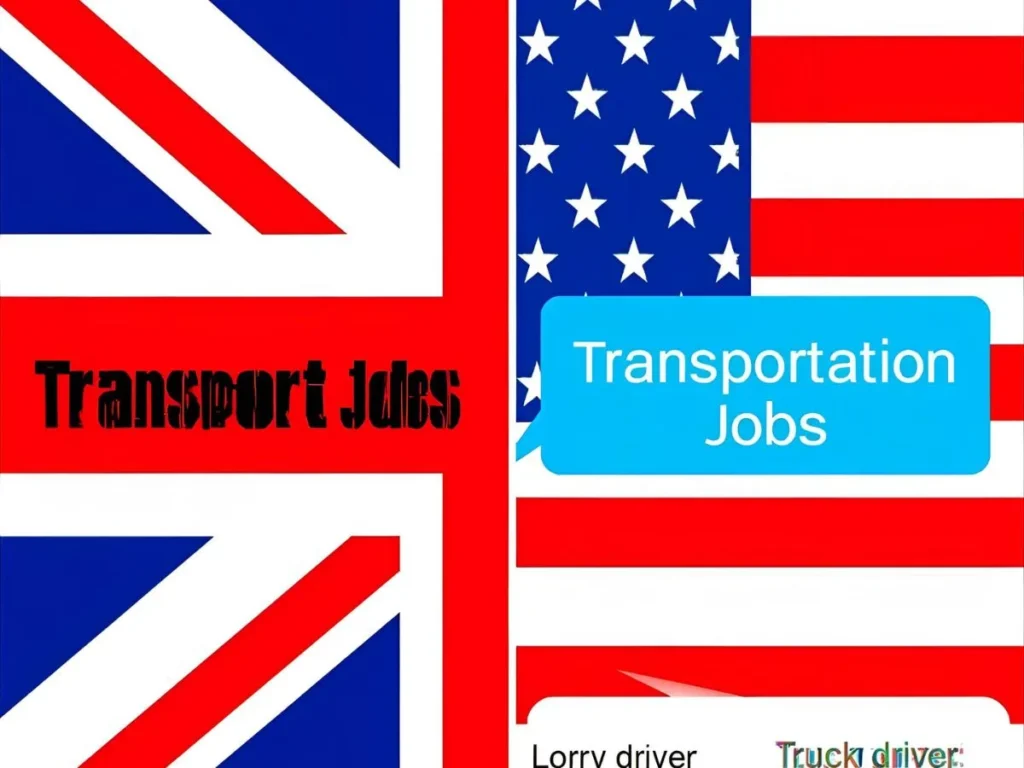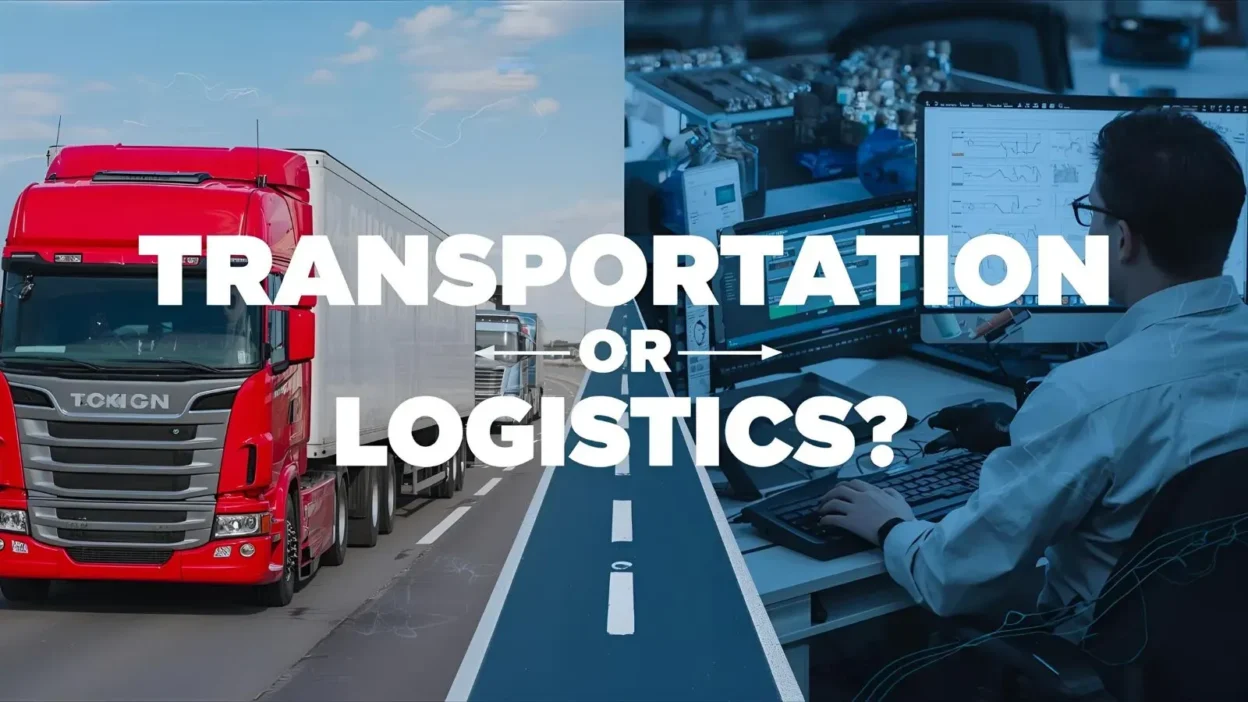Picture this: trucks rumble down highways, cargo planes take off around the clock, and warehouses stay lit long after dark. Behind all that movement? Two massive industries — transportation and logistics — working together to keep the world running.
But here’s the catch: a lot of people don’t know the difference.
You might’ve even searched “transportation or logistics jobs” yourself, trying to figure out which one is a better fit for your skills or goals.
So let’s clear that up.
- Transportation jobs focus on the physical movement of goods — like driving trucks, flying planes, or managing freight deliveries.
- Logistics jobs are all about the planning and coordination behind the scenes — routing shipments, managing inventory, and making sure everything arrives on time.
They’re different, but both are essential — and both offer stable careers, great pay, and room to grow, especially with the rise of e-commerce and global trade.
In this guide, we’ll break it all down:
✅ The difference between transportation and logistics
✅ What kinds of jobs exist in each
✅ Skills you’ll need
✅ Real-world examples to help you decide
Whether you’re a recent grad, switching careers, or just curious, this article will help you find a path that truly moves you forward.
Transportation or Logistics Jobs
Transportation jobs move people or goods from point A to B. Logistics jobs plan and manage the whole supply chain. Examples: A truck driver hauls freight (transportation). A logistics coordinator picks routes and tracks shipments (logistics). Both pay well—truck drivers average $50,000 yearly; logistics analysts hit $70,000.
The Origin of Transportation or Logistics Jobs

“Transportation” comes from Latin “trans” (across) and “portare” (carry), entering English in the 1500s for moving troops and goods. Jobs grew with steam engines in the 1800s, like railroads in the U.S. “Logistics” stems from French “logistique,” used by military leaders like Antoine-Henri Jomini in 1838 for supply lines. Ancient roots trace to Egyptians (3300 BCE) storing grain or Romans building roads. Post-WWII, businesses adopted it for efficiency. Spelling differences? None major—”transportation” vs. British “transport,” but jobs use standard terms. The rise of global trade in the 1900s created millions of roles, blending military precision with commerce.
British English vs American English Spelling

Both variants spell “logistics” the same, but “transportation” differs: American uses “transportation,” British shortens to “transport” as a noun. Rules follow broader patterns—Americans add “-ation” for actions; Brits prefer concise forms. Examples: U.S. job site lists “transportation manager”; UK says “transport manager.”
| Aspect | British English | American English |
|---|---|---|
| Key Term | Transport jobs | Transportation jobs |
| Example Phrase | Logistics and transport | Logistics and transportation |
| Job Title Usage | Lorry driver (truck driver) | Truck driver |
Which Spelling Should You Use?
Use “transportation” for U.S. audiences—it’s standard in job ads on sites like Indeed. In UK or Commonwealth (Canada, Australia), opt for “transport” to match local norms and avoid confusion. Go global? Stick to “transportation or logistics jobs” as it’s widely understood in international firms like DHL. Tailor to your crowd: American resumes? Full word. British CVs? Shorten it. This keeps applications sharp and shows cultural fit.
Common Mistakes with Transportation or Logistics Jobs
- Treating them as identical: Transportation is just movement; logistics includes planning. Fix: Read job descriptions carefully.
- Overlooking skills overlap: Many roles need both, like route planning. Fix: Highlight hybrid skills on resumes.
- Ignoring certifications: Skipping CDL for drivers or supply chain certs. Fix: Get trained early.
- Undervaluing soft skills: Forgetting communication for coordinators. Fix: Practice teamwork examples.
- Job search silos: Searching only one term. Fix: Use both keywords.
Transportation or Logistics Jobs in Everyday Examples
- Emails: “I’m applying for the transportation coordinator role at your firm.” (Job inquiry.)
- News: “Logistics jobs surge 10% amid e-commerce boom.” (Industry report.)
- Social Media: “Loving my new gig as a truck driver! #TransportationJobs” (X post sharing pride.)
- Formal Writing: “The logistics manager oversees transportation and inventory.” (Resume bullet.)
Transportation or Logistics Jobs – Google Trends & Usage Data
Google Trends shows “transportation jobs” peaking in the U.S. (highest interest) and Canada, while “logistics jobs” trends stronger in the UK and Germany. Searches for the full phrase rise 15% yearly, spiking in Q1 2025 with hiring seasons. Globally, U.S. leads volume due to 6M+ jobs; India follows with 12% growth from e-commerce. Context? Post-pandemic recovery drives it—truck drivers top queries in rural areas, analysts in cities. Social buzz on X highlights shortages, with #LogisticsJobs posts up 20% in Europe.
Comparison Table: Keyword Variations Side by Side
| Variation | Focus Area | Common Jobs | Avg. Salary (USD) |
|---|---|---|---|
| Transportation Jobs | Moving goods/people | Truck driver, pilot | $50,000 |
| Logistics Jobs | Planning supply chain | Coordinator, analyst | $70,000 |
| Transport Jobs (UK) | Broad movement | Lorry driver, rail operator | $45,000 |
| Supply Chain Jobs | Full oversight | Manager, engineer | $80,000 |
FAQs
- What’s the main difference between transportation and logistics jobs? Transportation moves items; logistics plans the process.
- Do I need a degree for these jobs? No for entry-level like driving; yes for management roles.
- Which pays more: transportation or logistics? Logistics often pays higher due to planning skills.
- Are these jobs growing in 2025? Yes, up 4% globally from e-commerce and trade.
- How to start in transportation jobs? Get a CDL license and apply via job boards.
- What’s a hot logistics job now? Supply chain analyst, with AI focus.
- Where are most jobs located? U.S. hubs like Atlanta; Europe in Germany.
Conclusion
Transportation or logistics jobs power the world’s flow of goods, blending hands-on driving with smart planning. We’ve unpacked the quick split: transportation hauls, logistics orchestrates. Roots in ancient trade and military smarts show their timeless pull. Spelling? Use “transportation” stateside, “transport” in the UK—match your market. Ditch errors like term swaps by reading postings close. See them shine in emails, headlines, and posts that keep chains humming. Trends point to U.S. dominance, with global rises in India and Europe fueling demand. Key takeaways: Both fields grow fast, pay solid, and need adaptable pros. Advice? Build skills like certs and tech savvy. Tailor searches to your spot—U.S. for volume, UK for efficiency. Whether trucking cross-country or optimizing routes, pick what excites you. Jump in: Update your resume, network on LinkedIn, and chase that role. The supply chain needs you—get moving today for a career that delivers.

I am Victor Stone, a passionate learner and content creator at Grammexa.com, where language meets clarity.
I am dedicated to simplifying confusing words, grammar rules, and “vs” comparisons for modern readers.
I am here to make English easy, accurate, and trending one explanation at a time.



